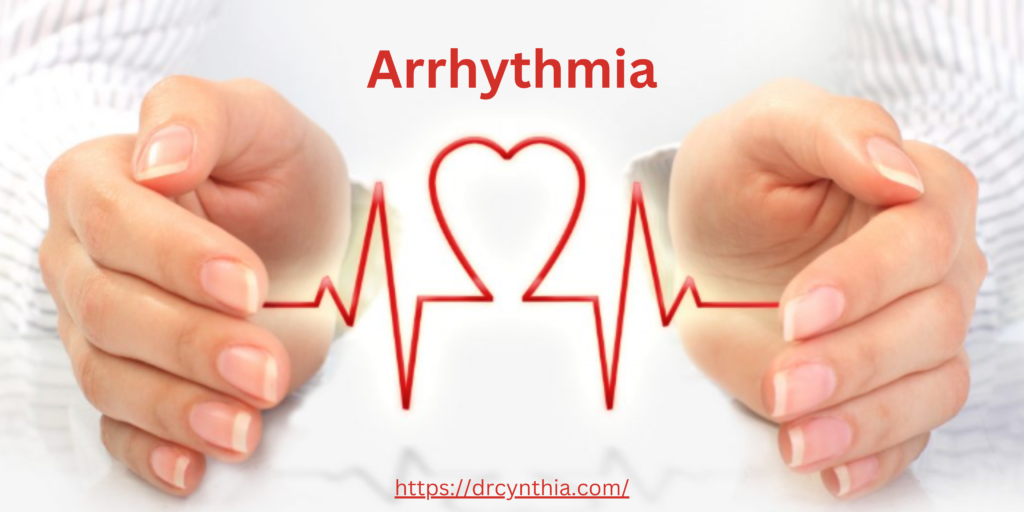Arrhythmia is a medical condition characterized by irregular heart rhythms, disrupting the normal, coordinated beating of the heart. This deviation from the standard rhythm can manifest in various forms, impacting the heart’s efficiency and overall function. Understanding the intricacies of arrhythmia, from its types and symptoms to causes and available treatments, is essential for anyone seeking insights into cardiac health. Arrhythmias encompass a spectrum of irregular heart rhythms, including:
Atrial Fibrillation: Irregular, rapid heartbeat affecting the upper chambers (atria) of the heart.
Atrial Flutter: Regular, but often rapid heartbeat originating in the atria.
Bradycardia: Abnormally slow heart rate, potentially causing dizziness and fatigue.
Tachycardia: Abnormally fast heart rate, leading to Heart palpitations and potential complications.
Arrhythmias can manifest in various forms, including atrial fibrillation, atrial flutter, bradycardia, and tachycardia. Each type has distinct characteristics and can impact the heart’s rhythm in different ways. Understanding these variations is essential for accurate diagnosis and tailored treatment plans.
Symptoms of Arrhythmia:
Recognizing the symptoms of arrhythmia is vital for early detection and intervention. By understanding common signs, individuals can promptly seek medical attention and address potential cardiac concerns. Recognizing the symptoms associated with arrhythmia is crucial for early detection and intervention. Common signs include:
- Palpitations: Sensation of rapid, fluttering, or irregular heartbeat.
- Chest Discomfort: Uncomfortable sensations or pain in the chest.
- Dizziness: Feeling lightheaded or faint.
- Fainting (Syncope): Loss of consciousness.
- Fatigue: Persistent tiredness despite normal activity.
Causes of Arrhythmia:
Arrhythmias can be triggered by a variety of factors, Exploring these root causes is crucial for both prevention and effective management of arrhythmia. Below are the common causes:
- Heart Disease: Conditions such as coronary artery disease.
- High Blood Pressure: Elevated blood pressure can contribute to arrhythmias.
- Diabetes: Uncontrolled diabetes may affect the heart’s electrical system.
- Smoking: Tobacco use is a known risk factor.
- Excessive Alcohol Consumption: Heavy drinking can disrupt normal heart rhythm.
- Stress: Emotional stress may contribute to arrhythmias.
Treatment Options:
The treatment approach for arrhythmia depends on its type, severity, and underlying causes. Interventions may range from lifestyle modifications and medication to more advanced treatments such as catheter ablation or implantation of pacemakers. Integrative cardiology centers like Holistic Heart Centers in Burbank, CA, may also offer holistic and functional medicine approaches for a comprehensive and patient-centric treatment plan. The approach to treating arrhythmia depends on factors such as type, severity, and underlying causes. Treatment modalities include:
- Lifestyle Modifications: Adopting a heart-healthy lifestyle.
- Medication: Prescribed to control heart rate or rhythm.
- Catheter Ablation: Minimally invasive procedure to correct abnormal heart rhythms.
- Pacemaker Implantation: Device to regulate heart rhythm.
Dietary Recommendations for Arrhythmia to Support Heart Health:
While diet alone cannot cure arrhythmia, maintaining a heart-healthy diet may contribute to overall cardiovascular well-being. It’s crucial to consult with a healthcare professional, such as a cardiologist or a registered dietitian, for personalized advice based on your specific condition. Here are some general dietary recommendations that may support heart health:
Omega-3 Fatty Acids: Found in fatty fish (salmon, mackerel, sardines), flaxseeds, chia seeds, and walnuts. Omega-3 fatty acids may have anti-inflammatory effects and support heart health.
Leafy Greens: Spinach, kale, Swiss chard, and other leafy greens are rich in vitamins, minerals, and antioxidants. These vegetables may contribute to overall heart health and provide essential nutrients.
Berries: Blueberries, strawberries, raspberries, and blackberries are rich in antioxidants. Antioxidants may help reduce inflammation and support cardiovascular health.
Oats and Whole Grains: Oats, quinoa, brown rice, and whole wheat provide complex carbohydrates and fiber. Fiber can contribute to heart health by helping to control cholesterol levels.
Lean Proteins: Skinless poultry, lean cuts of meat, fish, and plant-based protein sources (beans, lentils, tofu) are good options. Limit saturated and trans fats found in fatty cuts of meat and processed foods.
Nuts and Seeds: Almonds, walnuts, flaxseeds, and chia seeds are nutrient-dense snacks. These foods provide healthy fats, fiber, and various vitamins and minerals.
Avocado: Avocado is a source of monounsaturated fats, which may support heart health. It can be a healthy alternative to saturated fats.
Fruits and Vegetables: A colorful variety of fruits and vegetables provides a range of vitamins, minerals, and antioxidants. Potassium-rich options, such as bananas and oranges, may be beneficial for heart health.
Low-Fat Dairy or Dairy Alternatives: Choose low-fat or fat-free dairy products or fortified plant-based alternatives. These sources provide calcium and vitamin D for bone health.
Limit Sodium Intake: Reduce the intake of processed foods, canned soups, and restaurant-prepared meals, as they may be high in sodium. High sodium intake can contribute to high blood pressure, which is a risk factor for heart issues.
It’s essential to remember that individual dietary needs may vary, and it’s crucial to work with healthcare professionals to create a personalized plan. Additionally, maintaining a healthy lifestyle, including regular physical activity, stress management, and avoiding smoking, is integral to overall heart health.
Prevention and Holistic Cardiology:
Integrative cardiology emphasizes a holistic approach to cardiac health, considering not only the physical but also the emotional and lifestyle factors that contribute to heart well-being. Seeking the expertise of a female cardiologist in Burbank or exploring online cardiologist appointments allows individuals to access preventive and holistic care conveniently.
Holistic Primary Care and Functional Medicine:
Holistic primary care cardiologists focus on personalized and integrative approaches to cardiovascular health. By incorporating functional medicine principles, these practitioners address the root causes of cardiac issues, considering the interconnectedness of various bodily systems.
Accessing Integrative Cardiology in Los Angeles:
For those in Los Angeles, including Burbank, accessing integrative cardiology services is facilitated by the presence of reputable centers. Whether seeking a holistic cardiologist, preventative cardiologist, or integrative cardiology in Burbank, individuals can benefit from a multidimensional approach to heart health. If you are experiencing symptoms of arrhythmia or seeking comprehensive care for your heart health, our Integrative Cardiologists at Holistic Heart Centers in Los Angeles and Burbank are here to provide expert guidance and personalized treatment.
Why Choose Our Integrative Cardiologists?
Holistic Approach: Our cardiologists emphasize a holistic approach, considering the interconnected aspects of physical, emotional, and lifestyle factors influencing heart health.
Patient-Centric Care: We prioritize personalized care, tailoring treatment plans to your unique needs and preferences.
Innovative Solutions: Integrative cardiology combines traditional medical practices with holistic and functional medicine approaches, offering innovative solutions for managing arrhythmia.
Contact Information:
2211 W. Magnolia Blvd, Ste 140 Burbank, CA 91506
Phone: (818) 842-1410
Email: info@drcynthia.com
9AM – 4PM (Mon – Fri)
Take the first step toward optimal heart health by scheduling an appointment with our Integrative Cardiologists. Whether you’re in Los Angeles or Burbank, our team is dedicated to providing comprehensive and compassionate care for individuals dealing with arrhythmia.
Visit our website here for more information and to book your appointment online.
Conclusion:
Arrhythmia is a complex condition with various manifestations and causes. Understanding its nuances is key to prompt diagnosis, effective treatment, and proactive prevention. Integrative cardiology, with its holistic and patient-centric focus, provides a unique avenue for comprehensive cardiac care. As the field continues to evolve, individuals have the opportunity to explore innovative approaches to heart health, promoting overall well-being and vitality.





